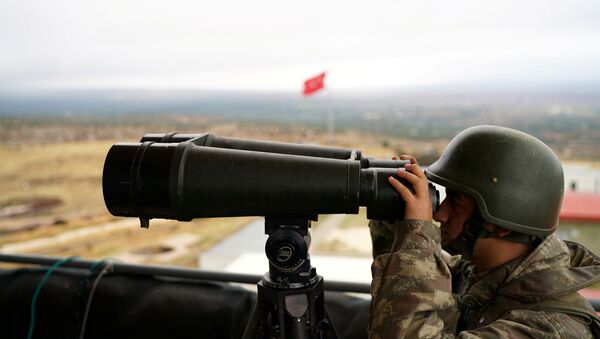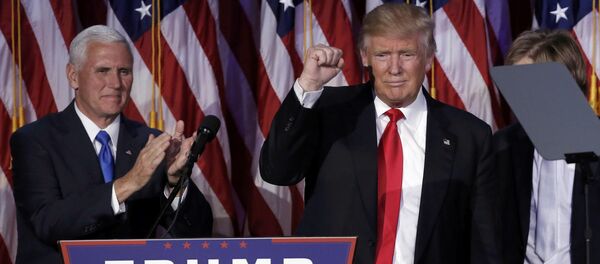Well-known Turkish economist, Professor Korkut Boratav described Donald Trump's probable policy in the Middle East as more of a negotiating one, while that of Hillary Clinton seemed to him more aggressive.
"Trump is in keeping with the US political tradition which puts more focus on the domestic situation within the US. He is not a supporter of the neoconservative aggressive imperialist tradition and wants to step back from it," he told Sputnik Turkiye.
However, in comparison to Clinton's stance on the Syrian issue, for example, Trump's behavioral pattern suggests he will work towards a policy of negotiations and dialogue, while Clinton's position has been largely dominated by aggressive elements, he explained.
Such an aggressive pattern over recent years has already drawn the US into a stand-off with Russia in Syria over the ousting of President Assad.
The US policies were aimed at even more bloodshed in Syria, a ramp-up of arms supplies which would have finally found a home with the jihadists and the total destruction and collapse of Syria, the scholar explained.
"If Trump does not yield to the lobbyists who play a decisive role in US foreign policy, he could facilitate a mild transition period in Syria," Korkut Boratav suggested.
The alternative approach proposed by Hillary Clinton suggested some kind of a "door", which, if opened, would have led to military scenario between Turkey and Syria, to more bloodshed and growing warring tendencies within and around Turkey.
"With Trump in office, the risks for Turkey to be lured into any dubious ventures are considerably lower," he told Sputnik.
Meanwhile Kani Torun, Deputy Chairman of the leading Turkish Justice and Development party (AKP) Foreign Affair Commission told Sputnik that during his electoral campaign Donald Trump has revealed a position close to Russia's stance on the Syrian issue.
"It is still too early to suggest anything with certainty, however the new US leadership might support Russia's and Turkey's firm position to preserve the territorial integrity of Syria," he said.
"It will be possible to suggest with more certainly what the US policy on Syria will be under Trump only when it is revealed who takes the posts of the US Secretary of State and Secretary of Defense," he said.
The politician however underlined that with Trump in power there will be a real chance for cooperation between the US, Turkey and Russia on a number of key issues in the Middle East.
"In this sense, Trump's victory will facilitate the policy of the national state. Fence mending between Russia and the US might mean facilitation of rapprochement between Washington and Ankara," he added.
The three countries, he said, could at least begin their cooperation in the Middle East in the fight against terrorism. They could also come to an agreement on the permanency of existing borders between the national states.
In this case, the Kurdish efforts to set up independent areas in Syria and Iraq which have been lately encouraged by the Obama administration won't get enough support within the new American leadership, Torun said.
The politician also commented on the electoral anti-Islamic rhetoric of Donald Trump, noting that regardless of his sharp remarks he was nevertheless elected, showing that there are certain prejudices among the American population regarding Islam.
With Trump's remarks resonating among average Americans it looks like, under Trump, the lives of various ethnic and religious minorities will be far from cloudless, he finally stated.





